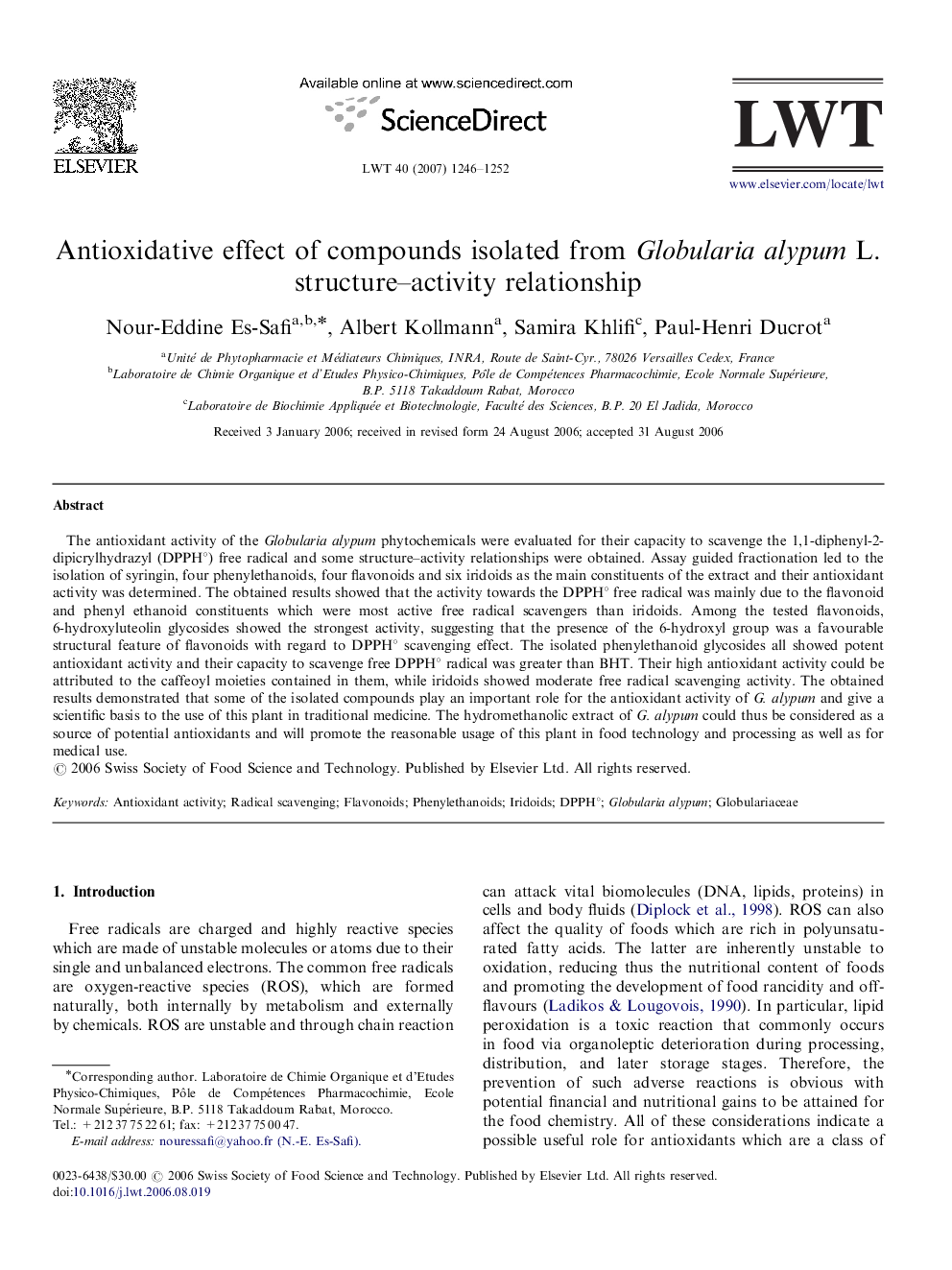| کد مقاله | کد نشریه | سال انتشار | مقاله انگلیسی | نسخه تمام متن |
|---|---|---|---|---|
| 4565271 | 1330964 | 2007 | 7 صفحه PDF | دانلود رایگان |

The antioxidant activity of the Globularia alypum phytochemicals were evaluated for their capacity to scavenge the 1,1-diphenyl-2-dipicrylhydrazyl (DPPH°) free radical and some structure–activity relationships were obtained. Assay guided fractionation led to the isolation of syringin, four phenylethanoids, four flavonoids and six iridoids as the main constituents of the extract and their antioxidant activity was determined. The obtained results showed that the activity towards the DPPH° free radical was mainly due to the flavonoid and phenyl ethanoid constituents which were most active free radical scavengers than iridoids. Among the tested flavonoids, 6-hydroxyluteolin glycosides showed the strongest activity, suggesting that the presence of the 6-hydroxyl group was a favourable structural feature of flavonoids with regard to DPPH° scavenging effect. The isolated phenylethanoid glycosides all showed potent antioxidant activity and their capacity to scavenge free DPPH° radical was greater than BHT. Their high antioxidant activity could be attributed to the caffeoyl moieties contained in them, while iridoids showed moderate free radical scavenging activity. The obtained results demonstrated that some of the isolated compounds play an important role for the antioxidant activity of G. alypum and give a scientific basis to the use of this plant in traditional medicine. The hydromethanolic extract of G. alypum could thus be considered as a source of potential antioxidants and will promote the reasonable usage of this plant in food technology and processing as well as for medical use.
Journal: LWT - Food Science and Technology - Volume 40, Issue 7, September 2007, Pages 1246–1252